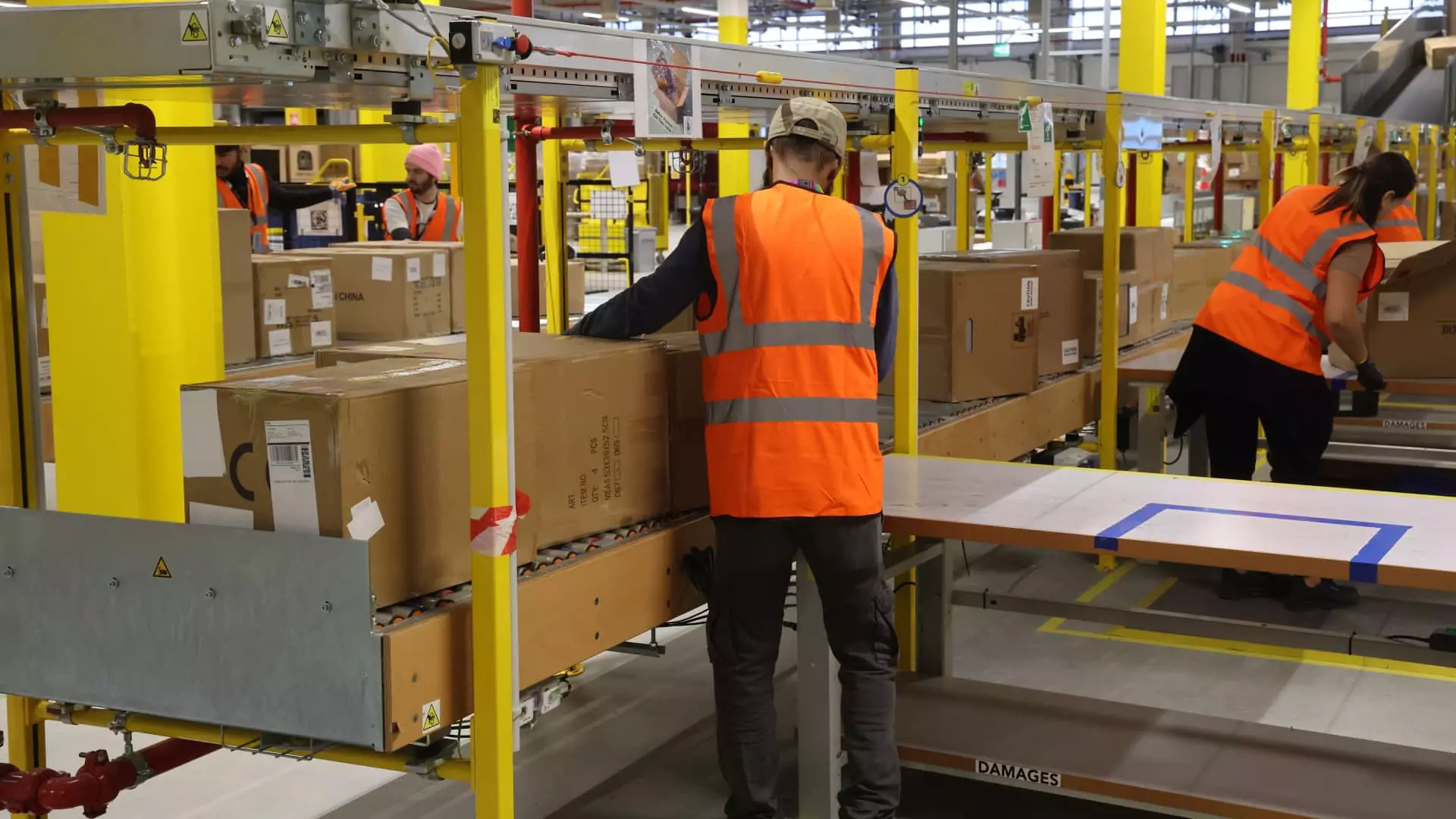In recent years, the narrative surrounding automation and AI has been painted as a tale of progress and innovation. Companies like Amazon proudly announce milestones—such as their millionth robot—cultivating an image of technological dominance that seems synonymous with efficiency and future readiness. However, beneath this veneer of advancement lies a troubling reality: the looming threat of widespread job displacement. These technological gains come at the cost of human livelihoods, exposing a fragile economic framework that prioritizes corporate efficiency over workforce stability. While automation touts faster deliveries and cost savings, it simultaneously undermines the very fabric of middle-class employment that sustains healthy economies.
Illusory Gains and the Disappearing Middle Class
The deployment of thousands of robots in fulfillment centers is often spun as a means of augmenting human labor—handling the heavy lifting or repetitive tasks that no one wants to do. Yet, this narrative conveniently glosses over the fact that AI and robotics are increasingly capable of independent operation, reducing opportunities for low-skilled workers. For example, Amazon’s “DeepFleet” AI model promises better coordination, but at what expense? The promise of a 10% efficiency gain may sound impressive, but it masks the broader trend: the automation of roles traditionally filled by humans. As these systems evolve, the middle-skilled jobs that once provided stability are being eliminated, creating a hollowed-out workforce with fewer opportunities for upward mobility.
The Paradox of Job Creation and Job Evisceration
Proponents argue that AI will generate new roles—more technical, more innovative positions—in the same way that factory automation once replaced manual labor with skilled manufacturing jobs. However, reality suggests a stark paradox. While some new positions may indeed emerge, they will likely require advanced technical skills and higher education—barriers that many displaced workers cannot readily overcome. The rapid pace at which automation is expanding outpaces retraining efforts, leading to a widening skills gap that frazzles the social fabric and deepens economic inequality. Amazon’s claim that its new operations will create 30% more jobs in technical fields, such as maintenance and engineering, falls short in addressing whether displaced workers can retrain quickly enough or affordably to transition into these roles.
The Ethical Dilemma of Corporate Progress
The corporate obsession with efficiency often manifests as a denial of the human cost behind these technological advancements. Statements from Amazon executives highlight how robots are “working alongside” employees, but this framing obscures the reality: automation is replacing human jobs. CEOs like Andy Jassy admit that significant workforce reductions are inevitable, justified by technological progress. This deliberate obfuscation turns human workers into casualties of innovation, a sacrifice on the altar of progress. These layoffs are not isolated incidents; they are symptomatic of a broader trend where the pursuit of profit trumps social responsibility.
The Broader Societal Impact: A Center-Left Perspective
From a center-wing liberal viewpoint, the relentless march of AI-powered automation is troubling—not because of progress per se, but because of its social implications. A healthy society depends on meaningful employment that offers dignity, stability, and opportunity. When corporations prioritize automation over human capital, they accelerate social stratification. The expectation that fewer workers will be needed in the future undermines social safety nets and hampers the development of a resilient, inclusive economy. It’s increasingly clear that without deliberate policy intervention—like retraining programs, living wages, and stronger labor protections—the workforce will continue to shrink, leaving millions behind in a sea of technological unemployment.
The Imperative for Responsible Innovation
Automated systems and artificial intelligence are tools that can serve society’s interests if wielded responsibly. But so far, corporate narratives have glossed over the human toll, emphasizing efficiencies while dismissing the importance of social cohesion. The challenge for policymakers, workers, and society at large is to demand a responsible approach—one that fosters technological innovation without sacrificing the dignity and economic security of the workforce. Technological progress should not become a justification for mass unemployment; instead, it should be a catalyst for creating new opportunities that are accessible and equitable. Until such a paradigm shift occurs, the illusion of prosperity powered by robots will remain at odds with the reality of a displaced, shrinking workforce.

